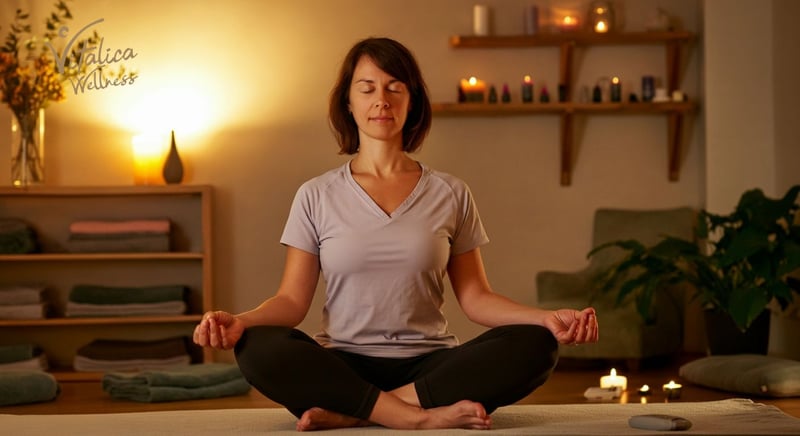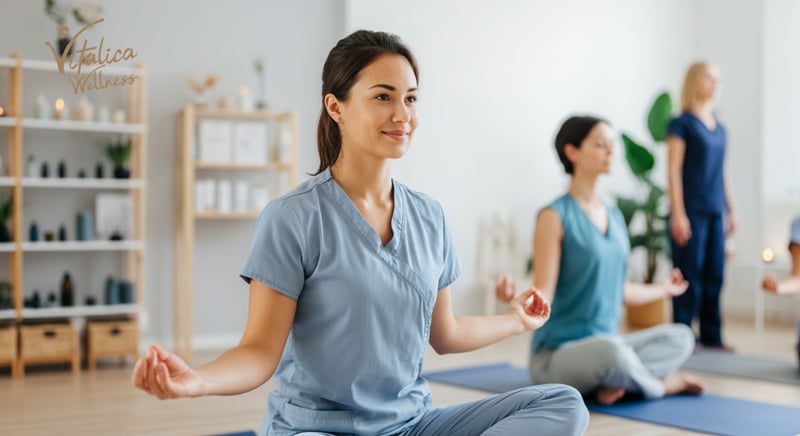The hustle and bustle of modern life often lead to elevated stress levels and anxiety, which can significantly impact one’s mental well-being. Vitalica Wellness, with its innovative approach, provides an ideal setting to explore practical techniques for stress management while basking in Bodrum’s tranquil environment.
Understanding the Roots of Stress: Why Mindfulness Matters
The Physiological Connection: Stress and the Body
Stress is fundamentally a survival mechanism, triggering a cascade of hormonal and physiological responses designed to prepare us for ‘fight or flight.’ However, in the modern world, this response is frequently activated by non-life-threatening situations such as work deadlines or financial worries. Chronic activation of the stress response can lead to a host of health problems, including cardiovascular issues and weakened immunity. Anxiety relief is paramount in mitigating these effects, emphasizing the need for effective stress management strategies. Consider the impact of daily commuting stress, which, much like an invisible tax, erodes physical and mental reserves over time.
- Hormonal Impact: Continuous stress elevates cortisol levels, linked to metabolic syndrome.
- Immune Sufficiency: Prolonged stress weakens the immune defense, resulting in increased susceptibility to illnesses.
- Energy Reservoirs: Constant engagement of stress responses significantly depletes overall reserves of body energy.
Mindfulness practices, such as meditation and deep breathing, offer a counterbalance by promoting relaxation and reducing the physiological arousal associated with stress.
The Psychological Impact: Mindfulness as a Tool
Psychologically, stress can manifest as anxiety, irritability, and difficulty in concentrating. Mindfulness addresses these symptoms by promoting a non-judgmental awareness of the present moment. This awareness allows individuals to observe and accept their thoughts and feelings without being overwhelmed by them, which is especially important for stress management. By focusing on the present, individuals can break free from the cycle of worry and rumination that often fuels anxiety and emotional distress. The practice becomes not just a method for managing stress but a lifestyle change towards sustained mental health, enhancing mental health and emotional stability.
- Observing Thoughts: Develop the ability to recognize thoughts without immediate reaction.
- Accepting Feelings: Acknowledge and accept emotions without judgment.
- Present Moment Focus: Ground oneself in the current experience to diminish worry.

Transform Your Workplace: Practical Steps to Reduce Stress at Work
Cultivating Open Communication
Open communication serves as the cornerstone of a supportive work environment, mitigating misunderstandings and fostering trust. Implementing regular feedback sessions, both formal and informal, can address concerns proactively and ensure that employees feel valued and heard. Encourage active listening and empathy among team members to create a psychologically safe space where individuals are comfortable expressing their ideas and anxieties without fear of judgment. Furthermore, establishing clear channels for reporting issues and providing support can significantly reduce stress levels related to workplace dynamics. For example, companies that regularly conduct anonymous surveys often report higher levels of employee satisfaction and lower stress-related absences.
- Active Listening: Emphasize the importance of fully concentrating and understanding colleagues’ viewpoints, avoiding interruptions.
- Transparent Policies: Guarantee all staff are well-informed on workplace policy changes to ensure transparency.
- Empathy Training: Provide sessions that focus on developing empathetic responses and recognizing emotional cues.
Ergonomics and Wellness Initiatives
Promoting physical well-being through ergonomic workstation setups and wellness initiatives can significantly enhance employee comfort, productivity, and stress management. Ergonomic assessments help in customizing workspaces to fit individual needs, minimizing physical strain and discomfort. Encouraging regular breaks, incorporating stretching exercises, and providing access to resources like standing desks can improve circulation and reduce musculoskeletal issues, which are often exacerbated by prolonged sitting. Additionally, integrating wellness programs such as relaxation techniques workshops, mindfulness sessions, and healthy eating campaigns empowers employees with practical tools to manage stress effectively and improve their overall mental and physical health. Such initiatives demonstrate a commitment to employee well-being, fostering a culture of care and enhancing workplace satisfaction.
- Ergonomic Assessments: Providing individual evaluations to adjust workstations, optimizing personal comfort and preventing strain.
- Mindfulness Training: Offering guided relaxation techniques to cultivate self-awareness and foster inner calm.
- Well-being Programs: Organizing health challenges or fitness groups, establishing an environment that enhances both the body and mind.

Beyond Breathing: Exploring Effective Relaxation Techniques
Incorporating Progressive Muscle Relaxation
Progressive Muscle Relaxation (PMR) stands as an effective calming technique focused on systematically tensing and releasing different muscle groups in the body. This practice enhances physical awareness and facilitates deeper relaxation by relieving muscular tension, often a direct response to stress. Regular PMR sessions can significantly reduce symptoms of anxiety and improve overall body awareness. PMR is highly accessible and can be practiced virtually anywhere, positioning it as a practical tool for daily stress management. Notably, individuals practicing PMR have reported a noticeable decrease in physical tension accompanying high-stress situations, like preparing for professional presentations.
- Enhanced Body Awareness: Strengthens the ability to feel subtle tension changes in the body, aiding proactive tension relief.
- Immediate Tension Relief: Offers a tangible method to release pent-up muscular tension, promoting physical calmness during stressful moments.
- Improved Sleep Quality: Regular practice before bed can deepen sleep, as physical tension reduces and prepares the body for rest.
Guided Imagery and Craniosacral Therapy at Vitalica Wellness
Guided imagery utilizes the power of imagination to evoke calming sensations and mental images, effectively reducing stress and promoting relaxation. It is often combined with therapeutic practices such as craniosacral therapy at Vitalica Wellness, where gentle manipulation of the skull and sacrum helps to alleviate restrictions in the craniosacral system. Craniosacral therapy encourages the body’s natural healing mechanisms, harmonizing mind and body. This holistic method not only addresses physical symptoms of stress but also enhances emotional and mental well-being by fostering a deeper sense of tranquility and balance. Vitalica Wellness integrates these techniques to provide a comprehensive approach to stress management emphasizing the interconnectedness of physical and mental health, with a goal of promoting long-term well-being.
- Customized Mental Journeys: Guides clients through peaceful settings, activating senses to support deep mental tranquilization and stress reduction.
- Gentle Body Realignment: Facilitates stress diffusion through precise body manipulation, which helps restore balance and improve natural healing processes.
- Mind-Body Synchronization: Unites relaxation techniques with physical therapy, fostering emotional balance and supporting comprehensive well-being.

Cultivating Calm: Simple Exercises for Immediate Stress Relief
Quick Exercises for Immediate Calm
Instant stress relief is more attainable than many realize, primarily through simple exercises readily accessible anywhere and at any time. A brief stretching routine can alleviate muscle tension accumulated from prolonged periods of sitting or stress-induced contractions. Additionally, a quick minute dedicated to mindfulness exercises can significantly reduce stress levels. These techniques bring awareness to the present, moving one’s focus away from anxieties about the future or ruminations about the past. One could easily integrate these calming moments during a busy workday or even while traveling.
- Desk Stretches: Gentle neck rolls, shoulder shrugs, and wrist extensions that alleviate tension.
- Mindful Breathing: Short deep breathing exercises that you can do during stressful moments.
- Sensory Awareness: Noticing 5 things around you, 4 things you can touch, 3 you can hear, 2 you can smell, and 1 you can taste.
Integrating Mindfulness Into Daily Walks
Engaging in a mindful walk stands out as a potent tool for stress reduction, transforming an ordinary activity into a therapeutic practice. By fully concentrating on sensory experiences—the feel of the ground beneath your feet, the sounds of the environment, the sights around you—a mindful walk redirects focus away from stressors. Another effective method is a brief body scan, systematically focusing attention on different parts of the body to identify and release tension. Vitalica Wellness champions the integration of such exercises into daily routines to foster emotional resilience and maintain a composed demeanor. Companies that encourage walking meetings often observe a boost in employee morale along with enhanced creativity. The key lies in deliberately shifting focus, thereby mitigating stress and promoting a sense of well-being.
- Focus on Sensation: Pay attention to each step, noticing the sensation of your feet making contact with the ground.
- Engage Senses: Actively observe colors, shapes, and textures during a walk, grounding attention in an awareness.
- Observe Breath: Coordinate breath with steps to promote relaxation and heighten attentiveness through each stroll.
Mastering Stress Management: Vitalica Wellness
Craniosacral & Guided Imagery Harmonization for Enhanced Stress Reduction
Holistic Therapies Promotes Balance and Wellness
Integrated Wellness System Fosters Patient Comfort and Stress Relief
Frequently Asked Questions
What are the most effective stress management techniques?
How can I reduce stress at work effectively?
Why is stress management important for mental health?
What simple exercises can provide immediate stress relief?
How does mindfulness contribute to overall well-being?
Ready to enhance your well-being with our holistic therapies?
